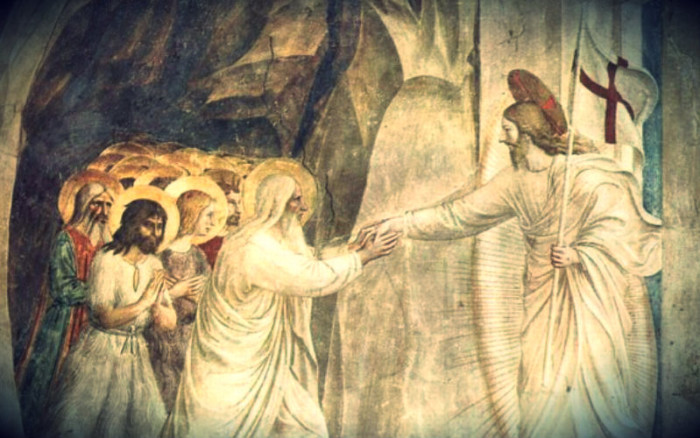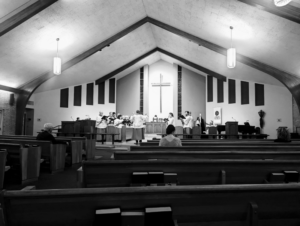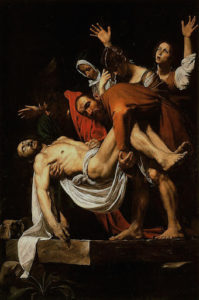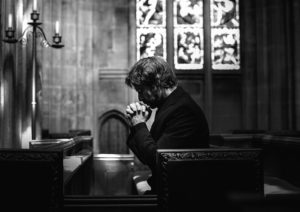Holy Saturday: A Moment of Darkness and a Reminder to Not Give Up Hope

“Grant, O Lord, that as we are baptized into the death of thy blessed Son, our savior Jesus Christ, so by continual mortifying our corrupt affections we may be buried with him; and that through the grave and gate of death, we may pass to our joyful resurrection; for his merits, who died, and was buried, and rose again for us, the same thy Son Jesus Christ our Lord. Amen.”
We have walked through our journey throughout Holy Week and sit in meditation as our Lord lay in a tomb. On Holy Saturday, we are invited to reflect in the silence and to dwell in the liminal space where the darkness of Good Friday and Easter dawn converge. In this reality, we encounter the mystery of Christ’s descent into the depths of death, the sting of morality, and the invisible work of God’s redemptive plan.
The Scene of Holy Saturday
The scene on Holy Saturday is one of mourning and grief. Christ has been crucified, and his body has been placed in a tomb. They laid Him in a new tomb in a garden near the place of the crucifixion. John tells the story of Joseph of Arimathea and Nicodemus, who took the body of Jesus and buried it with spices and linen cloths. It is a quiet and somber moment as the disciples of Christ are left to wait and wonder what will happen next. We, too, can find ourselves at this threshold, where we may be uncertain about the future and what it holds. But we are not alone, for Christ is with us, even in our waiting and anticipation.
The Sting of Death
The disciples were confronted with the reality of death, even the death of their beloved master, the Messiah.
In Psalm 88, the psalmist laments to God from the depths of Sheol, the place of the dead:
“Shall your steadfast love be declared in the grave, or your faithfulness in Abaddon?”
Scripture also cries aloud, “If a man dies, shall he live again?” (Job 14:14).
It is a sobering reminder that we are mortal and that death is a part of life. Let the power of those words sink in. Death can feel like captivity with no way to escape. Outside of the promises and teaching of Christ, the disciples had no assurance, just spices and a tomb to prepare the body. But as Christians, in light of the empty tomb, we can look back to a sure promise in the resurrection of Christ. He has overcome death and the grave, and we can trust in Him, even in our darkest moments.
God’s Invisible Work
On Holy Saturday, we are reminded of the invisible work of Christ. As the writer of Hebrews tells us, “He who has entered His rest has himself also ceased from his works as God did from His” (Hebrews 4:10). Christ’s work on the cross was finished, but he did not simply rest in the tomb. Rather, he descended into the depths of Sheol and preached to the spirits in prison (1 Peter 3:19). This is a mysterious and profound work, one that we cannot fully comprehend–that in his descent into Hell, Christ “made Hell captive” and “abolished” it, as St. John Chrysostom states in his sermon.
We can take comfort in Christ because He has passed through suffering and death, and He has emerged victorious. As we rest this Saturday looking forward to the dawn of Resurrection, we can hold fast to Him, knowing that He has conquered death and the grave and that He will one day raise us up with Him to everlasting life.
“What was happening on this day? A great silence reigned on earth, a great silence, and a great stillness. The whole earth was quiet, since the King was sleeping. The earth trembled and became still, because God had fallen asleep in the flesh and had raised up all who had slept ever since the world began. . . . He has gone to search for our first parent, as for a lost sheep. Greatly desiring to visit those who live in darkness and in the shadow of death, he has gone to free from sorrow the captives Adam and Eve, he who is both God and the son of Eve. . . . ‘I am your God, who for your sake have become your son. . . . I order you, O sleeper, to awake. I did not create you to be a prisoner in hell. Rise from the dead, for I am the life of the dead'” (Homily on Holy Saturday).
It is important that we take comfort in His victory over death and the grave. As we await the dawn of Resurrection, we must awaken from our slumber, for Christ is the life of the dead and has called us to rise from the grave.
Coram Deo: 1 Peter 4:1-6
Ultimately as Christians, we are all to imitate Christ in descending down into hell and participate in His victory over death. Death gives an air of uncertainty when we look merely at what is around us temporarily, but God, in the darkest hours, is working invisibly behind the scenes and destroys death itself. Let’s take some time to rest and meditate on what Holy Saturday means for us in Christ.
1 Peter 4:8 tells us to “arm our way in thinking” in His death and to live to the will of God. Look back on your 40 days of fasting, and remind yourself how you actively armed your way into thinking this way.
Let us continue to be self-controlled and sober-minded for the sake of our prayers.
Related Resources:
Collect for Easter Even: REC BCP
Alastair Roberts: Holy Saturday
Paschal Sermon of St. John Chrysostom
St. Epiphanius, Bishop of Cyprus: Homily on Holy Saturday
Saint Andrews Anglican: Why Do Anglicans Celebrate Feast Days?
Our Mission
To multiply faithful servants of Christ; who will commit themselves to the worship and doctrines of the Anglican way, and who will work by God's grace and for His glory to disciple the nations through the ministry of the Church.






